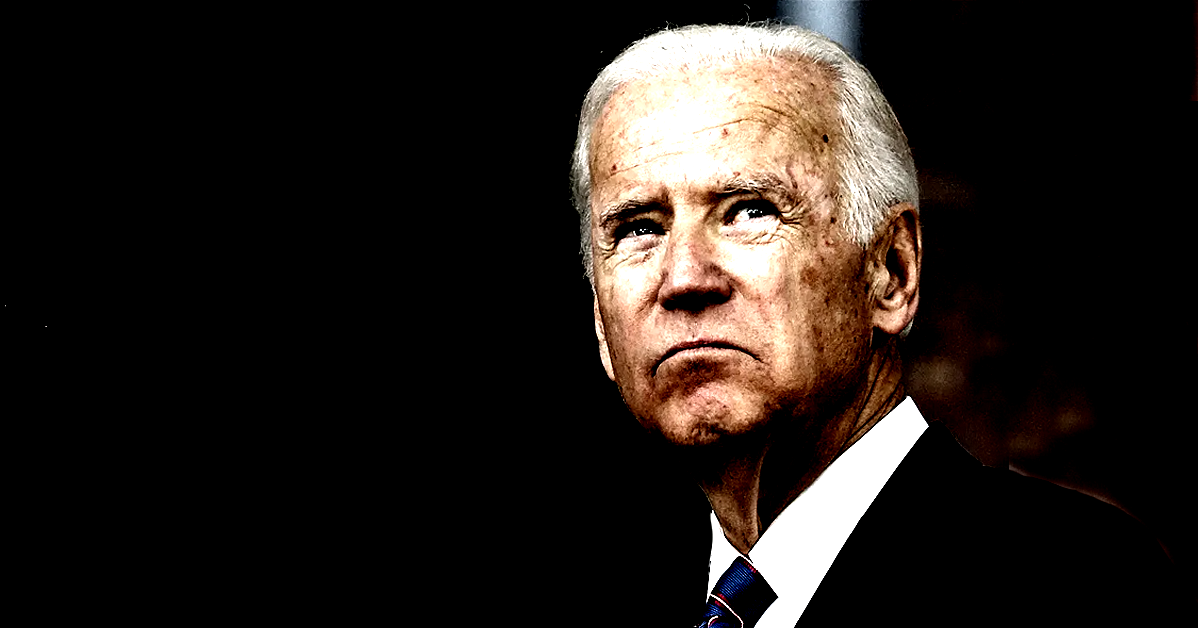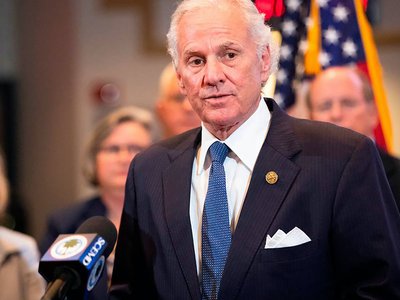President Biden's plan to increase the corporate tax rate would weaken economic recovery and hurt competitiveness, according to a report from the Tax Foundation.
Throughout the 2020 presidential campaign, Biden said that he planned to increase the corporate tax rate to 28%, a sharp rise from the current 21% set by former President Donald Trump's Tax Cuts and Jobs Act but still well below the pre-2017 corporate rate of 35%.
The report found that the increase would bring the United States's federal-state combined tax rate to roughly 32% — the highest statutory tax rate in the Organization for Economic Cooperation and Development. Such a tax hike would "increase the cost of investment in America" and "reduce long-run economic output by 0.8 percent, eliminate 159,000 jobs, and reduce wages by 0.7 percent."
William McBride, vice president of federal tax and economy at the Tax Foundation, told the Washington Examiner that most of those effects would be felt within 10 years of implementation. But while the projections address the long-term effects of new tax policies, McBride said the tax would acutely affect companies that were forced to lay off employees during the pandemic.
"As the economy returns to normal, the main challenge is to reemploy those that have been laid off, and as corporations would do much of that hiring, raising corporate taxes would increase costs for those businesses and slow the hiring process," McBride said.
"Poorly considered changes to tax policy, including business tax increases, would hamper the economic recovery and limit prospects over the long term," the report stated. "Understanding the potential effects of proposed changes to the corporate income tax, including the potential impacts on American workers, consumers, and the broader American economy, can help avoid costly mistakes."
Current tax laws put the 47.5% integrated tax rate, a combination of corporate taxes and taxes on dividends and capital gains, in the middle of the range of corporate tax plans within the OECD. Countries such as Ireland, Canada, and France have integrated tax rates over 50%, while countries such as Sweden, Japan, and Italy have rates at or below 45%.
"The top integrated tax rate faced by corporations today puts the United States near the middle of the pack compared to other OECD countries," the report read. Biden's plan, which also includes raising capital gains taxes, "would make the top integrated tax rate on corporate income in the U.S. the highest in the OECD at 62.7 percent."
Proponents for increasing the statutory corporate tax rate have called the move an efficient means of creating a more progressive corporate tax rate and suggested that Biden's plan to include a 10% tax credit for qualifying investments in American-made manufacturing offset a less competitive tax rate.
"Since the US corporate income tax largely falls on above-normal profits, or 'rents', a statutory rate increase is a relatively efficient and progressive way to raise revenue," wrote Thornton Matheson, a senior fellow at the Tax Policy Center. "Biden’s 10-percent 'Made in America' tax credit (MIATC) would offer a substantial marginal subsidy for qualifying investments. The combination of the rate increase and the tax credit would likely reduce overall corporate investment slightly but significantly shift those investments toward manufacturing."
Treasury Secretary Janet Yellen has said that the U.S. would also work with the OECD to establish global minimum corporate taxes, saying during her Senate confirmation hearing that a multinational approach to corporate taxation could "stop what has been a destructive global race to the bottom on corporate taxation."
McBride said he was skeptical that the OECD would make meaningful progress toward establishing a global minimum tax.
"The OECD has been working for years to develop a consensus on minimum taxation, and that process will likely continue for many more years and may or may not result in any OECD-wide agreement," McBride said. "The current state of the negotiations do not indicate a substantial impact on our analysis."






